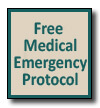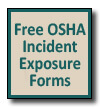Water Testing Kits
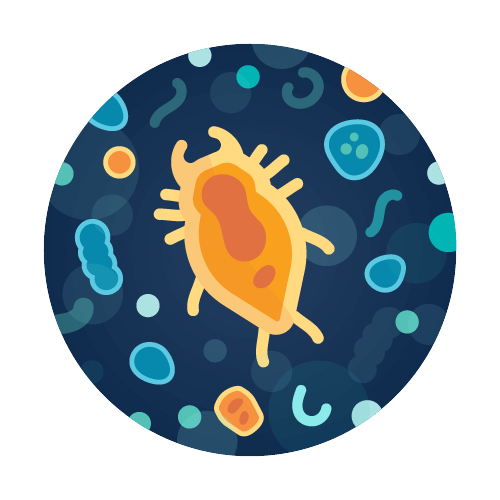
Total Microbiology Water Test
MSDS provides Total Microbiology Water Test for all-inclusive pathogen and microbiological screening for advanced identification and enumeration of thousands of species of bacteria, protozoa, algae and more in drinking water. This lab test analysis by a professionally trained operator with Scanning Electron Microscopy (SEM) and Nuclear Magnetic Resonance (NMR) spectroscopy. Results included quantified results for various species of microbiological organisms identified in a water sample.Select Options

Essential Dental Unit Water Test
MSDS provides Essential Dental Unit Water Test for testing vital analytic parameters for water quality in dental or medical offices. The analysis includes key water quality parameters such as heavy metals, total heterotrophic bacteria, anions (such as fluoride and nitrate), and general chemistry.Select Options

Legionella Water Test
MSDS provides Legionella Water Test for targeted testing of legionella in drinking water. Legionella is a gram-negative bacterium that often lives in still, warm water, but can survive under a wide range of temperatures and conditions. Legionella is most frequently found in air-conditioning units, faucets, pools, spas, showers and other water-related devices–and is cause of Legionnaire’s Disease. According to the Centers for Disease Control and Prevention (CDC), between 8,000 and 18,000 Americans are hospitalized each year with Legionnaire’s.Select Options
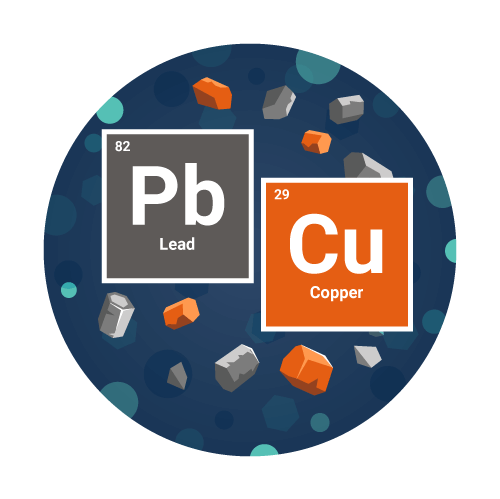
Lead and Copper Water Test
MSDS provides Lead and Copper Water Test. Lead and copper are commonly found in drinking water in homes, businesses, or other facilities with aging pipes and fixtures. These metals may leach from distribution lines or other plumbing into the water supply even after it leaves a utility or from on-premise lead and copper pipes.Select Options
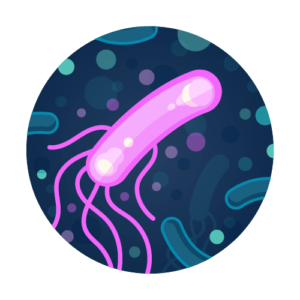
Silica Water Test
MSDS provides Silica Water Test. Commonly detected in new wells, silica enters groundwater supplies from natural weathering of silicate minerals of the soil. While silica causes no harmful human health effects, large amounts of silica in water can cause scaling in pipes, impact water flow, infrastructure, and may interfere with iron and manganese water treatment and removal.Select Options

HPC Water Test
MSDS provides targeted testing of heterotrophic bacteria in drinking water. Heterotrophic bacteria are broadly defined as microorganisms that require organic carbon for growth. They include bacteria, yeasts, and molds and this total heterotrophic bacteria plate count (HPC) test is an excellent way to demonstrate a quantified presence or absence of microbial activity in a water supply. This testing package is particularly recommended for those noticing a musty, moldy, or mildew-like smell or taste in their water or who have noticed microbial growth/biofilm buildup on fixtures.Select Options
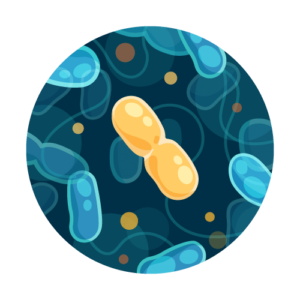
Coliform and E. coli Water Test
MSDS provides high-precision testing for the presence or absence of total coliform and E. coli bacteria. These two common potentially harmful bacteria indicators are of particular concern for people served by private wells or springs–as nearby contamination can enter into the ground water supplySelect Options
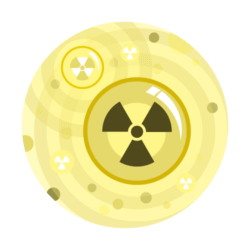
Full Radiation Water Test
MSDS provides Full Radiation Water Test as a broad screen for radioactivity in drinking water from any source. Alpha and beta radiation particles can be emitted from radon, uranium, strontium, radium, and other radioactive sources. According to a recent report from the Environmental Working Group (EWG), more than 170 million Americans drink tap water contaminated by radiation. Long-term exposure to low levels of radiation in drinking water is a serious health hazard, especially for pregnant women. Select Options
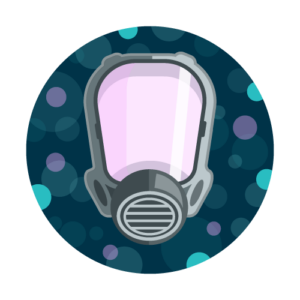
VOC Water Test
MSDS provides VOC Water Test for targeted testing of 50+ volatile organic compounds (VOC) in drinking water. VOCs are commonly detected in most city water supplies, as they are frequently formed as disinfection byproducts from chlorination processes. Additionally, they may also enter water supplies due to nearby contamination from waste facilties, oil and gas activity, heavy agriculture, or decaying plastic plumbing.Select Options

Essential Water Test
MSDS provides Essential Water Test for basic water testing for any home, business, or facility concerned with common water health risks, and in particular contamination from questionable plumbing and distribution lines. Testing is specialized to address contaminants such as heavy metals, minerals, common bacteria, general chemistry, and issues related to pipe health.Select Options
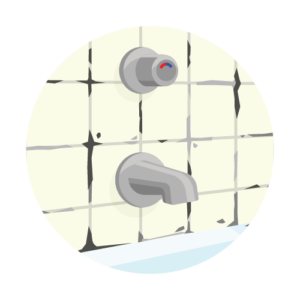
Mold and Fungus Water Test
MSDS provides Mold and Fungus Water Testing for common mold and fungal contamination in drinking water. Along with analysis for black mold (Asp. spp.) and other Aspergillus formations, and full speciation of Penicillium and Cladosporium genera–it also reports total heterotrophic bacteria count (HPC). Total HPC includes bacteria, yeasts, and molds and is an excellent way to demonstrate a quantified presence or absence of microbial activity in a water supply.Select Options
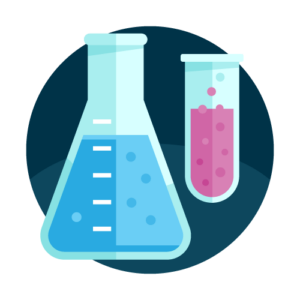
Advanced Water Test
MSDS provides Advanced Water Test for comprehensive water quality testing in any home, building, or facility served by a water utility or a private well–particularly those located near industrial or agricultural activity. The results include detailed analysis of common water health concerns related to natural water chemistry, nearby human activity, and on-premise plumbing, such as heavy metals, minerals, bacteria, hardness, silica, and volatile organic compounds (related to chlorination process and/or industrial activity).Select Options
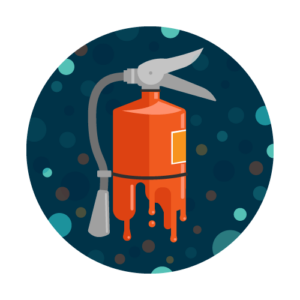
PFAS Water Test
MSDS provides PFAS Water Test for testing 14 of the most common PFAS in drinking water. PFAS (and related compounds like PFOA and PFOS) are most often associated with industrial waste and from consumer products like GoreTex®, Teflon®, StainMaster® carpets, Scotchgard®, and other flame retardants and non-stick products. While many industries have voluntarily stopped use of PFAS compounds, the stability and persistence of these compounds makes them a lifetime concern–as even extremely low levels have been shown to have deleterious human health effects.Select Options
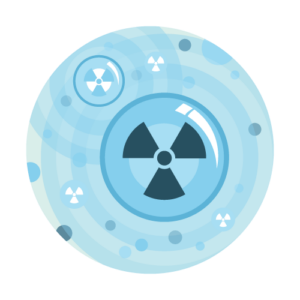
Radon Screen Water Test
MSDS provides Radon Screen Water Test. Various US states suggest safe levels for radon in drinking water range from 300 to 10,000 pCi/L and testing for radon is frequently suggested for clients on private well water.Select Options

Total Microbiology Water Test
MSDS provides Total Microbiology Water Test for all-inclusive pathogen and microbiological screening for advanced identification and enumeration of thousands of species of bacteria, protozoa, algae and more in drinking water. This lab test analysis by a professionally trained operator with Scanning Electron Microscopy (SEM) and Nuclear Magnetic Resonance (NMR) spectroscopy. Results included quantified results for various species of microbiological organisms identified in a water sample.Select Options

Essential Dental Unit Water Test
MSDS provides Essential Dental Unit Water Test for testing vital analytic parameters for water quality in dental or medical offices. The analysis includes key water quality parameters such as heavy metals, total heterotrophic bacteria, anions (such as fluoride and nitrate), and general chemistry.Select Options

Legionella Water Test
MSDS provides Legionella Water Test for targeted testing of legionella in drinking water. Legionella is a gram-negative bacterium that often lives in still, warm water, but can survive under a wide range of temperatures and conditions. Legionella is most frequently found in air-conditioning units, faucets, pools, spas, showers and other water-related devices–and is cause of Legionnaire’s Disease. According to the Centers for Disease Control and Prevention (CDC), between 8,000 and 18,000 Americans are hospitalized each year with Legionnaire’s.Select Options

Lead and Copper Water Test
MSDS provides Lead and Copper Water Test. Lead and copper are commonly found in drinking water in homes, businesses, or other facilities with aging pipes and fixtures. These metals may leach from distribution lines or other plumbing into the water supply even after it leaves a utility or from on-premise lead and copper pipes.Select Options

Silica Water Test
MSDS provides Silica Water Test. Commonly detected in new wells, silica enters groundwater supplies from natural weathering of silicate minerals of the soil. While silica causes no harmful human health effects, large amounts of silica in water can cause scaling in pipes, impact water flow, infrastructure, and may interfere with iron and manganese water treatment and removal.Select Options

HPC Water Test
MSDS provides targeted testing of heterotrophic bacteria in drinking water. Heterotrophic bacteria are broadly defined as microorganisms that require organic carbon for growth. They include bacteria, yeasts, and molds and this total heterotrophic bacteria plate count (HPC) test is an excellent way to demonstrate a quantified presence or absence of microbial activity in a water supply. This testing package is particularly recommended for those noticing a musty, moldy, or mildew-like smell or taste in their water or who have noticed microbial growth/biofilm buildup on fixtures.Select Options

Coliform and E. coli Water Test
MSDS provides high-precision testing for the presence or absence of total coliform and E. coli bacteria. These two common potentially harmful bacteria indicators are of particular concern for people served by private wells or springs–as nearby contamination can enter into the ground water supplySelect Options

Full Radiation Water Test
MSDS provides Full Radiation Water Test as a broad screen for radioactivity in drinking water from any source. Alpha and beta radiation particles can be emitted from radon, uranium, strontium, radium, and other radioactive sources. According to a recent report from the Environmental Working Group (EWG), more than 170 million Americans drink tap water contaminated by radiation. Long-term exposure to low levels of radiation in drinking water is a serious health hazard, especially for pregnant women. Select Options

VOC Water Test
MSDS provides VOC Water Test for targeted testing of 50+ volatile organic compounds (VOC) in drinking water. VOCs are commonly detected in most city water supplies, as they are frequently formed as disinfection byproducts from chlorination processes. Additionally, they may also enter water supplies due to nearby contamination from waste facilties, oil and gas activity, heavy agriculture, or decaying plastic plumbing.Select Options

Essential Water Test
MSDS provides Essential Water Test for basic water testing for any home, business, or facility concerned with common water health risks, and in particular contamination from questionable plumbing and distribution lines. Testing is specialized to address contaminants such as heavy metals, minerals, common bacteria, general chemistry, and issues related to pipe health.Select Options

Mold and Fungus Water Test
MSDS provides Mold and Fungus Water Testing for common mold and fungal contamination in drinking water. Along with analysis for black mold (Asp. spp.) and other Aspergillus formations, and full speciation of Penicillium and Cladosporium genera–it also reports total heterotrophic bacteria count (HPC). Total HPC includes bacteria, yeasts, and molds and is an excellent way to demonstrate a quantified presence or absence of microbial activity in a water supply.Select Options

Advanced Water Test
MSDS provides Advanced Water Test for comprehensive water quality testing in any home, building, or facility served by a water utility or a private well–particularly those located near industrial or agricultural activity. The results include detailed analysis of common water health concerns related to natural water chemistry, nearby human activity, and on-premise plumbing, such as heavy metals, minerals, bacteria, hardness, silica, and volatile organic compounds (related to chlorination process and/or industrial activity).Select Options

PFAS Water Test
MSDS provides PFAS Water Test for testing 14 of the most common PFAS in drinking water. PFAS (and related compounds like PFOA and PFOS) are most often associated with industrial waste and from consumer products like GoreTex®, Teflon®, StainMaster® carpets, Scotchgard®, and other flame retardants and non-stick products. While many industries have voluntarily stopped use of PFAS compounds, the stability and persistence of these compounds makes them a lifetime concern–as even extremely low levels have been shown to have deleterious human health effects.Select Options

Radon Screen Water Test
MSDS provides Radon Screen Water Test. Various US states suggest safe levels for radon in drinking water range from 300 to 10,000 pCi/L and testing for radon is frequently suggested for clients on private well water.Select Options


